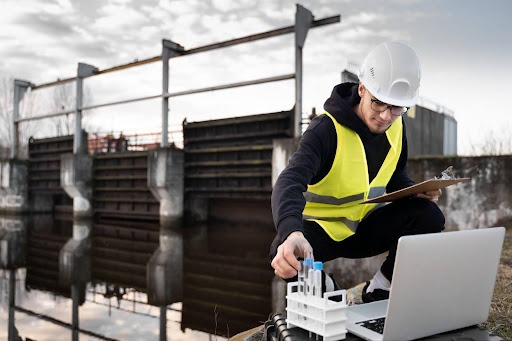Building and maintaining water and wastewater facilities require careful planning and execution. These facilities play a crucial role in public health and environmental protection, making it vital to get every step of the construction process right. As a general contractor, understanding the unique demands of these projects is key to delivering successful outcomes.
Water and wastewater projects involve various complex systems, including filtration, storage, and distribution. Proper management of these elements ensures that the facility operates efficiently and meets all regulatory standards. It’s not just about erecting structures; it’s also about integrating advanced technologies and sustainable practices.
Pre-construction planning is the foundation upon which successful water and wastewater projects are built. It involves everything from site selection and design to budgeting and scheduling. Effective pre-construction planning helps us anticipate challenges, allocate resources efficiently, and set the stage for a smooth construction process. Let’s explore some tips that can help us manage these projects more effectively.
Understanding the Unique Needs of Water and Wastewater Facilities
Water and wastewater facilities have specific requirements that set them apart from other types of construction projects. These facilities must handle large volumes of water while adhering to strict health and safety regulations. This involves managing intricate systems for treating and distributing clean water, as well as processing and disposing of wastewater. Understanding these needs is crucial for successful project execution.
One primary concern is ensuring the reliability and durability of treatment systems. These systems must be designed to withstand constant use and harsh conditions, such as exposure to chemicals and extreme weather. Materials selection is another critical aspect. We need corrosion-resistant pipes, tanks, and other components to ensure long-term functionality. Additionally, these projects often include advanced technology such as automated control systems to monitor and manage operations efficiently. By prioritizing these needs, we can create facilities that offer safe and dependable services to communities.
Essential Pre-Construction Planning Tips
Pre-construction planning lays the groundwork for a successful water or wastewater project. Effective planning begins with a thorough site assessment. We need to evaluate factors such as soil conditions, topography, and proximity to existing infrastructure. This information helps us identify potential challenges and develop strategies to address them. It also ensures we select the optimal location for the facility, minimizing future issues.
Next, developing a detailed project timeline is essential. This timeline should account for every phase of the project, from initial design through to construction and commissioning. Proper scheduling allows us to allocate resources effectively and avoid delays. Part of this process involves budgeting accurately. We must consider all potential costs, including materials, labour, and permits, to ensure the project remains financially viable. Communication with stakeholders during this phase is crucial for aligning expectations and securing necessary approvals.
By taking these steps in the pre-construction phase, we create a solid foundation for the project. This proactive approach helps avoid surprises and keeps the project on track, ultimately leading to a more efficient and successful construction process.
Effective Construction Practices for Water and Wastewater Projects
Implementing effective construction practices is crucial for the success of water and wastewater projects. One essential practice is maintaining a strong focus on safety protocols. Given the hazardous nature of materials and processes involved, strict adherence to safety standards protects workers and ensures the integrity of the facility. Regular safety audits, proper use of personal protective equipment (PPE), and thorough training for all personnel are foundational to a safe work environment.
Utilizing advanced construction technologies can also enhance project efficiency and quality. Tools like Building Information Modeling (BIM) allow us to create detailed 3D models of the facility, helping us visualize potential issues before they arise. This proactive approach reduces the likelihood of costly reworks and helps us adhere to tight schedules. Additionally, incorporating sustainable construction methods, such as using eco-friendly materials and energy-efficient systems, supports long-term operational efficiency and environmental stewardship.
Post-Construction Considerations and Maintenance Tips
Once the water or wastewater facility is constructed, post-construction activities and ongoing maintenance play a pivotal role in sustaining its functionality. Conducting thorough inspections and performance testing immediately after construction ensures all systems operate as intended. Addressing any issues identified during these inspections helps prevent future operational disruptions and extends the facility’s lifespan.
Developing a comprehensive maintenance plan is equally important. This plan should include regular inspections, routine maintenance tasks, and schedules for replacing worn-out components. Employing monitoring technology can provide real-time data on the facility’s performance, enabling us to detect and address issues swiftly. Training facility staff on the proper operation and maintenance of equipment fosters a deeper understanding of the systems, ensuring the ongoing reliability of the facility.
Conclusion
Successful management of water and wastewater projects hinges on understanding the unique needs of these facilities, meticulous pre-construction planning, effective construction practices, and diligent post-construction maintenance. By focusing on these critical areas, we ensure that these essential infrastructure projects meet their objectives and serve communities effectively.
We have explored various aspects of managing water and wastewater projects, from identifying specific needs to implementing effective construction and maintenance strategies. These insights are crucial for tackling the challenges that come with water and wastewater facility projects.
For further assistance on your water and wastewater projects, feel free to reach out to Industra Construction Corp. Our expertise in EPC design-build and construction services ensures that your projects are managed efficiently and to the highest standards. Connect with us today if you need wastewater treatment plant construction.

















